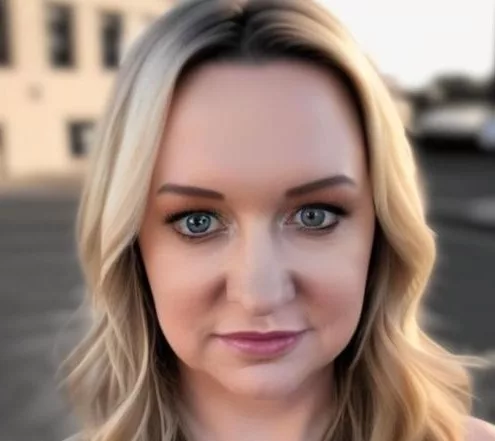
Table of Contents
Key Takeaways
-
Federal funding helps provide addiction treatment to people in need.
-
Many treatment centers depend on this funding to stay open and offer care.
-
Grants and support from agencies like SAMHSA help fight substance use and mental health challenges.
-
Without this funding, thousands could lose access to treatment.
-
Virtue Recovery Center supports people with quality, accessible care every day.
Introduction
Addiction and mental health problems are growing across the country. Every day, people struggle with drug use, alcohol addiction, or both. These struggles can be overwhelming—and dangerous.
But here’s something important: many people wouldn’t be able to get help without federal funding. This funding makes it possible for treatment centers to provide care, especially for those who can’t afford it.
In this article, we’ll talk about how federal money supports addiction treatment. We’ll explain why it matters and how it helps save lives.
What Is Federal Funding and Where Does It Come From?
Federal funding is money provided by the U.S. government. It supports many public programs—including addiction treatment and mental health services.
Where does this money come from? Key sources include:
-
SAMHSA (Substance Abuse and Mental Health Services Administration)
-
NIDA (National Institute on Drug Abuse)
-
HHS (Department of Health and Human Services)
These agencies provide grants and support for treatment centers, prevention programs, and research. One major example is the Substance Abuse Prevention and Treatment Block Grant, which helps states fund programs that treat substance use disorders.
How Federal Funding Supports Addiction Treatment Services
So, what does federal funding actually do?
It pays for many of the services people rely on, including:
-
Outpatient treatment – where patients get therapy while living at home
-
Residential treatment – where people live at the facility and get 24/7 care
-
Medication-Assisted Treatment (MAT) – using medications like Suboxone or Methadone to treat opioid addiction
-
Therapy and counseling – for both mental health and substance use
-
Crisis services – like hotlines or emergency response
Without this money, many of these programs wouldn’t exist. People would have nowhere to go for help.
Why Federal Funding Is Vital for Access and Equity
Not everyone can afford treatment. And not all communities have the same access to care.
Federal funding helps make sure everyone has a chance to get better—no matter where they live or how much money they have.
This is especially important for:
-
Low-income families
-
People in rural areas
-
Minority communities
-
Uninsured individuals
It also supports people with co-occurring mental health disorders, who may need special care.
Addiction and mental health challenges can happen to anyone. Federal support helps level the playing field and give people hope.
Challenges Caused by Federal Funding Cuts
Unfortunately, not all funding is guaranteed. When the government cuts money for addiction and mental health care, people suffer.
Here’s what happens when there isn’t enough funding:
-
Longer waitlists – people have to wait weeks or months for treatment
-
Staff shortages – fewer doctors, therapists, and nurses available
-
Closed programs – some centers shut down or reduce services
These cuts can lead to more overdoses, more emergency room visits, and more people going without help. It’s not just a health problem—it becomes a public safety crisis.
How Federal and State Agencies Work Together
Federal funding often starts at the top—but it doesn’t stay there. That money goes to states, and from there, to local programs and treatment centers.
Federal agencies like SAMHSA and HHS create guidelines and goals. State health departments then manage how those dollars are used in their communities.
This teamwork is important. It ensures that the right services are available where they’re needed most. It also means programs must meet high standards to keep their funding.
The Role of Virtue Recovery Center in the Funded Treatment Landscape
At Virtue Recovery Center, we understand how important this funding is. We serve people from all walks of life—including those who rely on federally funded programs.
Whether someone needs outpatient therapy or full residential care, our goal is always the same: to help people recover and rebuild their lives.
We work with public and private insurance. We help patients explore grant-funded programs when possible. Most importantly, we never treat someone like a number. We see every person as worthy of healing and hope.
Conclusion
Federal funding saves lives. It gives people a chance to escape addiction, improve their mental health, and live better lives.
Without this support, many treatment centers wouldn’t exist. People who need help would go without. That’s why it’s so important to protect and expand this funding—so that anyone who needs help can get it.
At Virtue Recovery Center, we believe everyone deserves a chance at recovery. Whether you’re struggling with substance use, mental health, or both—we’re here to help.
Call Virtue Recovery Center today at 866-461-3339 to speak with someone who cares. Recovery starts with the right support.
FAQs About Federal Funding For Addiction Treatment Programs
Why is federal funding important for substance abuse treatment?
Federal funding is crucial for substance abuse treatment as it provides essential financial resources that support treatment facilities, enhance access to behavioral health services, and reduce barriers to treatment for people with substance use disorders.How does the Mental Health Services Administration contribute to addiction treatment?
The Mental Health Services Administration plays a vital role by overseeing federal grants for substance abuse treatment, ensuring that funding is allocated effectively to support treatment and recovery services for individuals struggling with addiction.What are the barriers to treatment that federal funding helps to address?
Federal funding helps to address various barriers to treatment, such as lack of access to substance abuse treatment programs, high costs associated with treatment, and insufficient availability of quality treatment facilities and services for those in need.How does grant funding impact the quality of treatment for substance use disorders?
Grant funding enhances the quality of treatment by allowing treatment facilities to implement evidence-based practices, improve service delivery, and expand access to effective treatment options for individuals facing substance abuse and mental health challenges.What role does the National Institute on Drug Abuse play in federal funding for treatment?
The National Institute on Drug Abuse conducts research that informs federal funding priorities, ensuring that the substance use disorder services funded by the government are based on the latest scientific evidence regarding effective treatment approaches.How does federal Medicaid funding support addiction and mental health treatment?
Federal Medicaid funds provide critical financial support for treatment facilities, allowing them to offer comprehensive substance use treatment and mental health services, thereby improving access to care for people with behavioral health needs.What is the significance of the enhanced federal matching rate for substance abuse treatment?
The enhanced federal matching rate increases the amount of federal funding available for state and local government programs, thereby promoting better access to treatment options and improving the overall effectiveness of addiction and mental health treatment across communities.How can federal funding improve treatment access during a mental health crisis?
Federal funding can enhance treatment access during a mental health crisis by providing resources for immediate intervention and support services, ensuring that individuals experiencing a crisis receive timely and appropriate care to address their substance use and mental health needs.What types of treatment options are supported by federal grants for substance abuse treatment?
Federal grants support a variety of treatment options, including outpatient and inpatient programs, medication-assisted treatment, counseling services, and recovery support services, all aimed at helping individuals achieve lasting recovery from substance use disorders.How Can Oregon’s Opioid Settlement Funds Impact the Importance of Federal Funding in Addiction Treatment?
Oregon’s opioid settlement funding can significantly enhance addiction treatment programs across the state. By channeling these resources into comprehensive care initiatives, they can bridge gaps in federal funding. This strategic use of local funds ensures that communities receive the necessary support, ultimately improving outcomes for those struggling with addiction.
Resources
https://www.samhsa.gov/grants/block-grants https://www.ncbi.nlm.nih.gov/books/NBK64279/ https://www.grants.gov/search-results-detail/349683Are You Covered For Treatment?
At Virtue Recovery Center, we understand the importance of accessible care. That’s why we’re in-network with numerous private insurance companies, ensuring that your journey to recovery is supported from the start. Let us help you quickly and easily verify your insurance coverage. Begin your path to healing today.
- About the Author
- Latest Posts
Nicki Lugo, CPC, LAC, LCADC, CCTS( Clinical Director )
Nicki Lugo is currently employed as Clinical Director at Virtue Recovery Center in Las Vegas. Nicki is a licensed clinical professional counselor (CPC) in the state of Nevada and a licensed associate counselor (LAC) in the state of Arizona. She is also a licensed clinical alcohol and drug counselor (LCADC) in Nevada. Additionally, Nicki has specialized training in treating trauma and is a certified clinical trauma specialist (CCTS).
Nicki has earned a Master of Science degree in Psychology with an emphasis in Behavioral Health from the University of Phoenix and a Master of Science in Professional Counseling from Grand Canyon University. Currently, Nicki is pursuing a Doctor of Philosophy (PhD) in Counseling Education and Supervision at Grand Canyon University. Nicki’s research interests include the use of Positive Psychology interventions with dual diagnosis clients. Nicki hopes to contribute to the body of knowledge in treating substance use disorders.
Nicki’s long-term career goals include advancing in leadership roles within Virtue Recovery Center which is a quickly growing substance use disorder treatment facility. She hopes that one day her research and advocacy will help to save the lives of those who have been affected by substance use. She likes to say that advocacy is her passion and leadership is her superpower.
How Cognitive Behavioral Therapy Supports Lasting Sobriety After Cocaine Addiction …
How an Eating Disorder Program Helps Manage Binge-Eating Episodes Key …
Key Takeaways Regular exercise reduces cravings and withdrawal symptoms. Physical …
Key Takeaways Veterans Day began as Armistice Day in 1918 …
Key Takeaways Proper nutrition plays a vital role in addiction …
Key Takeaways Long-term sobriety is achievable with evidence-based addiction treatment …


























